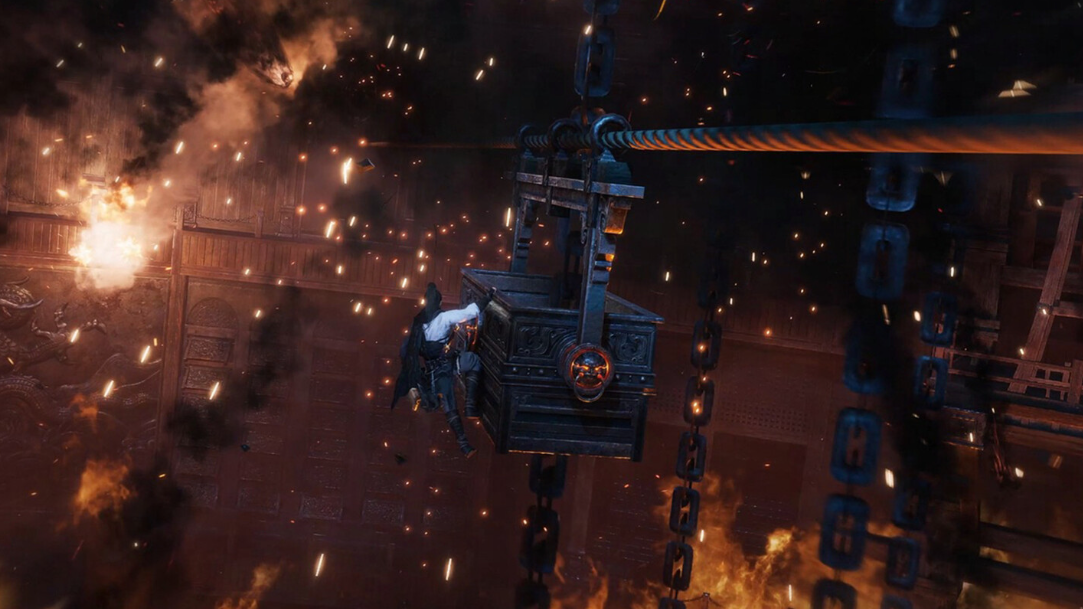Where Winds Meet treats “marriage” as one branch of a wider relationship system between players. You’re not romancing NPCs here; you’re formalizing bonds with other human players, with gameplay perks layered on top.
In the current Chinese release and global tests, players have access to four long‑term relationship types:
| Relationship type | Who it’s for | Key limits | What you unlock as it levels |
|---|---|---|---|
| Marriage | Two (or more, in one sect) player characters | Standard: 1 partner; special sect can marry up to 6 | Cosmetics, titles, couple emotes, notifications, world access, cosmetic sharing |
| Normal friendship | Any two players | No advertised hard cap | Login notifications, easy joining each other’s world, small social perks |
| Master–disciple | One mentor and up to 5 students | 1 master, max 5 disciples per master | Mentor/pupil cosmetics and titles, summon/assist options, co‑op hooks |
| Sworn Brotherhood | Small, tight‑knit group | Up to 10 sworn “siblings” | Group titles, shared actions, world access, support in events like jailbreaks |
All four are driven by an “intimacy” or bond level. As that shared level rises, you unlock more features: the game pings you when your partner logs in, lets them hop into your world more freely, and even allows time‑limited sharing of cosmetics between you.
Where Winds Meet supports same‑sex marriage
The game does not enforce gender pairing rules. A male character can marry a male character, and the same goes for female–female couples. The system treats these marriages the same way it treats mixed‑gender ones: you get the same bond progression, social actions, and mechanical perks.
There’s no need to change your character’s gender to unlock marriage options. Players in current builds marry freely across character genders, and the relationship is recognized by the game as a full marriage, not a workaround through “sworn” labels.
Multiple spouses in a specific sect
Most of the time, marriage is a one‑to‑one bond between two players. However, one sect — commonly referred to by players as Zuihuayin — explicitly plays with that rule. Joining that sect allows your character to marry several different players at once, with reports of up to six spouses being supported.
That multi‑marriage behavior is tied to sect design rather than being a global rule. In other words:
- If you are not in that sect, expect marriage to behave as a standard pair bond.
- If you join it, the sect’s own “scheming” and social flavor includes encouraging multiple marriages.
This is very much in line with Where Winds Meet’s broader sect system, where each faction has its own rules, tasks, and social quirks that bleed into everyday play.

What marriage actually gives you in gameplay terms
Marriage in Where Winds Meet is not just a title above your head. It plugs directly into the game’s broader “Hero Bond” system and provides a set of concrete perks:
- Cosmetic unlocks: Couple outfits, visual effects, or themed accessories tied to your shared bond level.
- Titles and labels: In‑game titles that reflect your relationship status, visible to other players.
- Couple‑only emotes and actions: Romantic or playful animations that only married pairs can trigger with each other.
- Presence awareness: Notifications when your spouse logs in, making it easy to sync sessions.
- World access shortcuts: A married partner can more easily join your solo world, or you theirs, without extra friction.
- Cosmetic sharing: For a limited time window (around an hour), one partner can let the other “borrow” their cosmetics.
The net effect is that marriage makes another player unusually “close” to your character in the game’s systems: you see when they’re around, you can reach them easily, and you share some of your toys.
How marriage fits into the wider Hero Bond system
Relationship systems in Where Winds Meet are layered. Marriage sits at the top as the most committed bond, but the underlying structure is the same “intimacy” meter used across friendships, sworn brotherhoods, and master–disciple pairs.
At a high level, those systems work like this:
| Bond type | How you raise it | Examples of rewards |
|---|---|---|
| Marriage | Play together, co‑op content, shared activities, time spent in each other’s worlds | Couple cosmetics, couple emotes, access and notification perks |
| Normal friendship | Grouping up, running events, playing mini‑games together | Titles, small social perks, easier join options |
| Sworn Brotherhood | Group content, shared challenges, ceremonies | Group titles, cosmetics, key mechanics like jailbreak coordination |
| Master–disciple | Helping with bosses, mentoring, co‑op fights where the master supports disciples | Mentor and pupil titles, cosmetics, summons/assist options in PvE |
Marriage is essentially the most intimate version of this structure: two people (or more in that one sect) push their shared bond level to unlock the densest set of couple‑specific rewards.
Marriage vs. other bonds: how they feel different
On paper, all four bond types look similar — build intimacy, unlock cosmetics, get some social perks. In practice, they target different parts of the game.
- Marriage is about one specific partner (or a small “harem” in the special sect) and comes with explicitly romantic actions and language. It foregrounds that one relationship in your social feed and world access.
- Sworn Brotherhood is aimed at small, tight‑knit groups of up to 10 players who want to be flagged as a unit. This bond shows up in systems like jailbreaks, where your sworn siblings can coordinate to get you out of prison.
- Master–disciple formalizes mentoring. One experienced player can have up to five disciples and get structured ways to support them in combat and progression.
- Normal friendship is the lightest touch: it makes it easier to see when someone is online and hop into content together, without the ceremony of the other bonds.
Mechanically, these systems stack. A person can be your spouse and also part of your sworn brotherhood and guild, for example, because they operate on different layers.
Can you marry NPCs in Where Winds Meet?
No. The formal marriage system is strictly between player characters. You can’t register an official in‑game marriage to an NPC.
That said, the single‑player and village‑building layers offer some playful loopholes for people who like NPC “romance” flavor:
- When you build a village, you recruit NPCs and decide where they live, sleep, and even bathe.
- Players have found ways to place their own bed on top of, or right next to, an NPC’s bed in the house layout, creating the illusion that they share a home.
- Some NPCs have AI‑driven conversations and will respond to flirting with more nuance than static dialogue trees, and can reward you with gifts if you build enough friendship.
These behaviors echo romance mechanics in other action RPGs, but they’re not wired into the formal marriage system. Think of them as sandbox role‑play options rather than a supported “marry this NPC” feature.
Is there marriage in single‑player mode?
The official marriage system targets interactions between real players, so it lives squarely in the online side of the game. Single‑player mode focuses more on:
- Your personal story and exploration.
- Village building and housing, including recruiting and managing NPCs.
- AI‑driven NPC friendships and gift‑giving.
In other words, if you stay purely offline, you can still lean into relationship flavor with NPCs, but you won’t be running wedding ceremonies or unlocking the co-op-oriented marriage perks. To engage fully with marriage, you need to opt into the online layer.
The “marriage tree” and other social oddities
Where Winds Meet threads humor and risk into its social systems, and marriage is no exception. One of the stranger features players talk about is the so‑called “marriage tree” or “fate tree” (姻缘树).
The behavior is simple:
- If you attack this tree, lightning strikes your character.
- After being hit, your character’s body enters a very poor condition that typically requires treatment from multiple player‑doctors at once.
- Getting struck repeatedly can unlock achievements in the same way that serving very long sentences in prison can.
Mechanically, it’s another way to push people into co‑operative play: you do something reckless, you get broken, and you suddenly need several medical specialists to fix you. Socially, it reinforces the game’s theme that bonds — marital or otherwise — are messy, risky, and sometimes hilarious.
How to actually meet someone to marry
Because marriage is tied to the broader Hero Bond system, the game doesn’t force you into it. You can play for hundreds of hours without marrying anyone. But if you do want to seek a partner, Where Winds Meet gives you several tools:
- Tree of fate “dating board”: You can leave a red leaf on the tree with a short message. Other players can read your leaf and contact you, or you can pick leaves from the tree and reach out to those players yourself.
- Guilds, sects, and brotherhoods: Many marriages naturally emerge from small guilds, sect membership, or sworn brotherhood groups that already play together often.
- Co‑op healing and bounty systems: Playing as a doctor, bounty hunter, or helper in other players’ worlds naturally throws you together with people who may later become friends, then spouses.
Once you’ve found someone and raised your intimacy high enough, marriage is just another formal step: you convert an already close Hero Bond into a named relationship with added perks.

Why the marriage system matters in this game
Where Winds Meet is built as a hybrid: a long single‑player wuxia story layered with MMO‑like systems. The marriage mechanics are one of the clearest examples of that design. They don’t gate raw power or progression, and the game’s monetization is focused on cosmetics rather than stat advantages, but they do influence how you move through the world:
- You have stronger reasons to log in when your partner is on.
- You get more frictionless ways to switch from solo play into co‑op sessions with a specific person.
- You gain extra reasons to engage with social professions like doctor or architect, because those roles can directly support your spouse and your shared playstyle.
If you’re coming from traditional MMOs that only use marriage as decoration, the system here is still mostly cosmetic and social, but it’s more tightly wired into how the world works. And if you care about queer representation or non‑traditional arrangements, the fact that you can marry same‑gender characters — and even maintain multiple marriages within one sect — makes Where Winds Meet’s relationship model stand out in a crowded genre.

